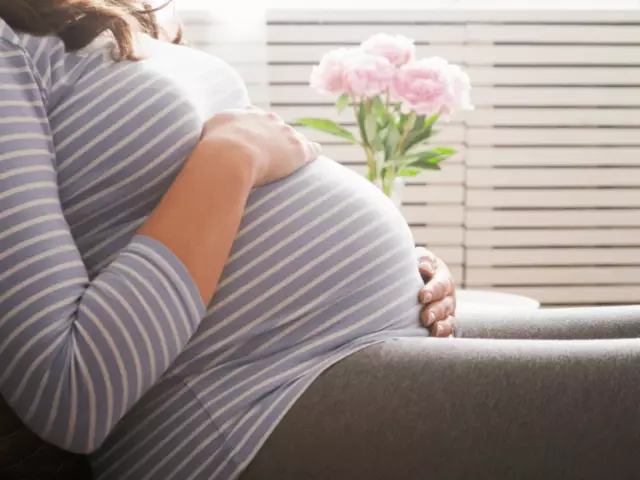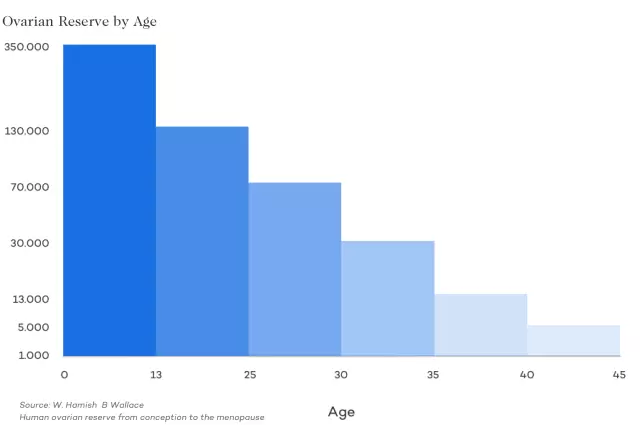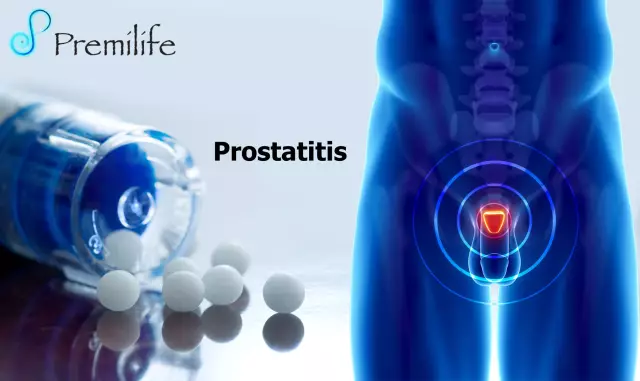- Author Rachel Wainwright [email protected].
- Public 2023-12-15 07:39.
- Last modified 2025-11-02 20:14.
What is the chance of getting pregnant without a condom?
Many women who have an active sex life are interested in what is the likelihood of getting pregnant in a given situation. More often, those who do not plan children yet, but those who dream of a child can also look for such information, are interested in this issue.

Probability is just a statistic. Whether conception will occur depends on many factors. Some women will be able to get pregnant even with a minimal probability. Others will not be able to conceive under the most favorable circumstances. What is the probability of getting pregnant - that information that must be taken into account, but you should not hope for a chance.
What is the chance of getting pregnant without contraception?
What is the chance of getting pregnant without a condom and other methods of contraception? Unprotected intercourse can result in conception on almost any day of the cycle and in every woman. Theoretically, pregnancy requires ovulation or the next day, healthy partners and a little luck. What is the likelihood of getting pregnant - in practice, the answer to this question also depends on the desire to have a child. An unwanted pregnancy occurs on the most inappropriate days for conception and in spite of any diagnosis. On the other hand, medical workers have no real statistics. How many unprotected intercourses are there per conception is impossible to count.
How likely you are to become pregnant without a condom or other methods of contraception depends on a number of important factors. The day of the menstrual cycle, the age of the partners, and their reproductive health matter. If these factors are not taken into account, then the probability is considered to be approximately equal to 25%. This means that a quarter of all women will not wait for the onset of the next menstruation in the first month without protection. Moreover, just one unprotected intercourse may be sufficient. With regular sexual activity without contraception, pregnancy will occur in 40% of women after a maximum of 3 months, in 65% after a maximum of 6 months and in 90% after a maximum of 18 months.
What is the likelihood of getting pregnant on different days of the cycle
The menstrual cycle prepares a woman's body for pregnancy. On different days, a woman's ability to conceive changes. The days in the middle of the cycle are considered the most favorable for the onset of pregnancy. What is the likelihood of getting pregnant at this time? If you guess with ovulation, then the chances of conceiving in healthy partners are close to 90-95%. Ovulation in the average menstrual cycle occurs at about 14 days. This is the time for the release of a mature egg. The likelihood of conception is very high on the very day of ovulation. Unprotected intercourse can result in pregnancy on other days. Sperm cells can remain viable in a woman's genital tract for up to 6 days. Even if sex was a few days before ovulation, the remaining sperm can fertilize an egg that has matured after a while. After ovulation, conception can occur within 24 hours. If during this time the sperm does not enter the genital tract, then the egg degrades and dies. What is the chance of getting pregnant in the days before and after ovulation? The chances of conceiving at this time are record high and reach 60-70%.
In a standard menstrual cycle, the most favorable days for pregnancy are between 8 and 16 days. But in practice, the physiology of each woman is individual. There are not very many standard menstrual cycles, and even they are subject to some changes. Some women ovulate much earlier than 14 days, while others - much later. It also sometimes happens that you ovulate again during the same menstrual cycle. In this case, a new mature egg cell usually appears on days 22-24. Contraceptive methods based on determining ovulation using calendar calculations are very inaccurate. What is the chance of getting pregnant with this type of contraception? 3 out of 10 women using this method will experience pregnancy in their first year.
What is the likelihood of getting pregnant after menstruation
According to the calendar method of contraception, the days after menstruation are considered safe in terms of conception. Is this so in practice? It all depends on the length of the menstrual cycle and the health of the partners. If the cycle is short, that is, less than 28 days, then the chances of getting pregnant increase dramatically. What is the likelihood of getting pregnant after menstruation in this case? It can be assessed as high - about 60%. When can still unprotected intercourse after menstruation end in conception? Primarily in women with a long bleeding period. If the menstruation itself lasts 5-7 days, then conception in the days after it is very likely. Secondly, irregular menstruation increases the likelihood of conceiving after your period. In this situation, it is difficult to predict ovulation, which means that it will not be possible to calculate "safe days". Thirdly,the likelihood of getting pregnant after menstruation is especially high in young and healthy couples. The quality of the semen is more important. The more viable and active the sperm are, the longer they can wait for the egg to mature. What is the average chance of getting pregnant after your period? It is difficult to give an exact figure. But there are so many chances that only couples planning a child should have sex without contraception during this period.
What is the likelihood of getting pregnant in the days leading up to your period?
The days before menstruation are "safer" in terms of conception. If ovulation was single, and fertilization did not occur, then conception is theoretically impossible until the next cycle. This rule certainly has its exceptions. The very definition of the days preceding menstruation becomes a particular difficulty for many. If the cycle is irregular, then this cannot be done. What is the likelihood of getting pregnant in the days leading up to your period? There are few chances, but not less than 3-5%. Diagnosing pregnancy in such a situation can be a problem. A woman will guess her position only after a month, when the next menstruation does not come. To be protected or not in the days before menstruation? Definitely yes. The risk of getting pregnant is still unreasonably high, even these days.

What is the likelihood of getting pregnant during menstruation
Menstruation is not the best time to conceive. Ovulation is usually not yet soon, the hormonal background is inappropriate, the endometrium is not ready for egg implantation. But the menstrual blood itself is not an obstacle to the advancement of sperm. What is the chance of getting pregnant during your period? Theoretically, it is not high, but only in 1-2 days, and is about 10-15%. Already from day 3, this figure begins to increase sharply. Spontaneous or early ovulation, high-quality viable sperm and some other factors make conception sometimes possible, even if unprotected intercourse was during menstruation.
It is difficult to calculate what is the probability of getting pregnant in each case. If you are not planning a child, then you should not rely on statistics. There is always a chance of getting pregnant with unprotected intercourse, which means that the risk remains unreasonably high for any responsible woman. A gynecologist will help you choose the right contraception.
YouTube video related to the article:
Found a mistake in the text? Select it and press Ctrl + Enter.






